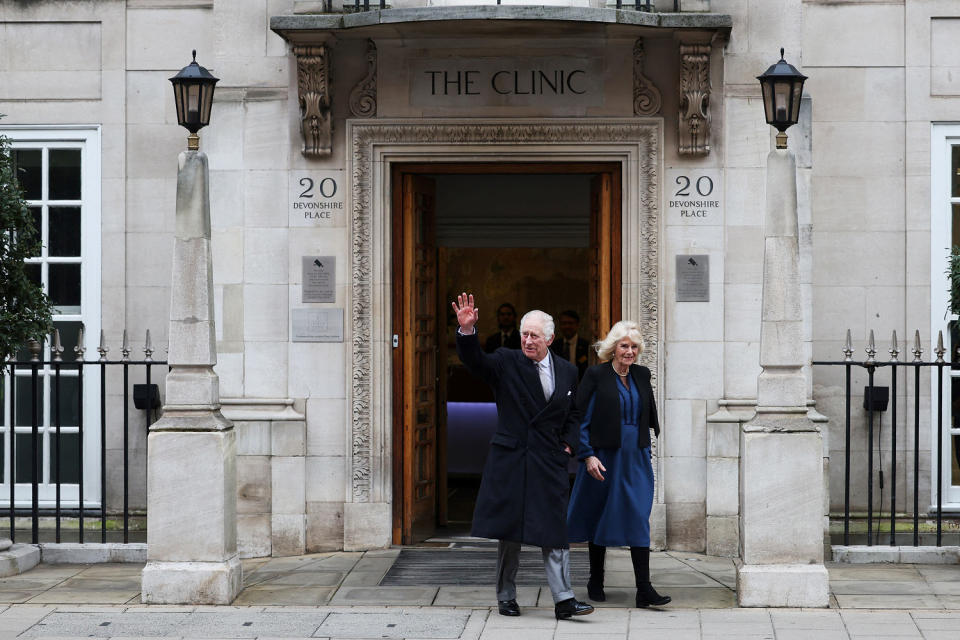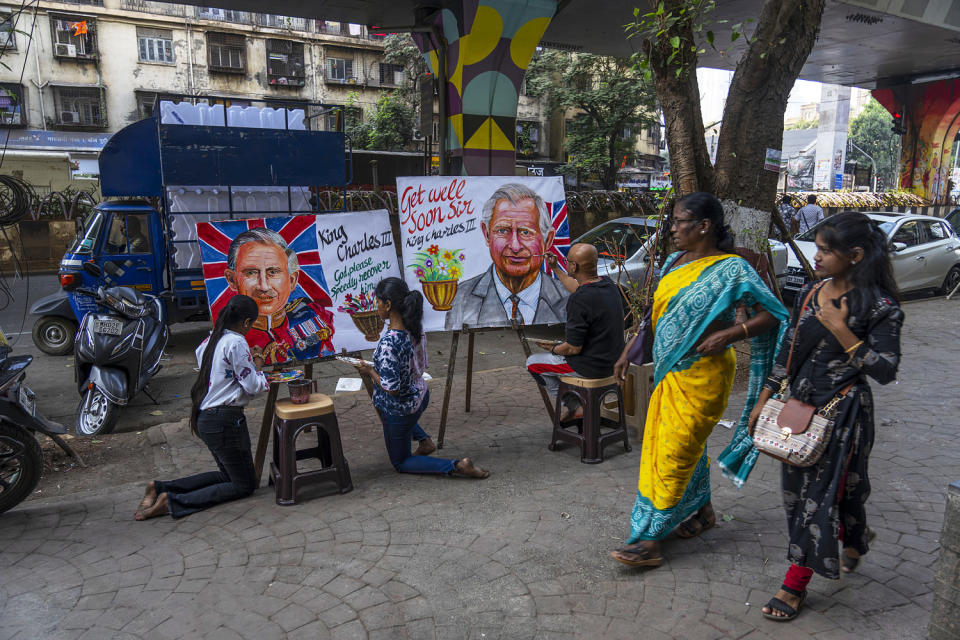King Charles' cancer diagnosis was a rare royal health revelation but still left much unsaid
- Oops!Something went wrong.Please try again later.
- Oops!Something went wrong.Please try again later.
- Oops!Something went wrong.Please try again later.
LONDON — Britain’s King George VI died 72 years ago Tuesday after cancer treatment so secret that it was hidden from the media, the public — and perhaps even the king himself.
On the eve of that anniversary, his grandson King Charles III broke with that tradition of royal mystery by announcing that he, too, has been diagnosed with cancer.
The king has been lauded for his openness, saying he chose to make the announcement “to prevent speculation and in the hope it may assist public understanding for all those around the world who are affected by cancer.”
His candor “shows us both that Charles wants to be more open but also how society has moved on,” NBC News royal commentator Daisy McAndrew said, and that “sharing your cancer, sharing your own emotions and feelings about what you’re going through, can be very helpful, not just to yourself, but to everybody else.”
However, there are several key questions left unanswered by the palace, specifically what type of cancer it is, what treatment he is receiving and what exactly is the prognosis for the septuagenarian king, who assumed the throne only 18 months ago.
The palace has said it is not prostate cancer, and British Prime Minister Rishi Sunak added new detail Tuesday morning, saying in an interview with the BBC that the disease had been “caught early.”
The remaining unknowns are already fueling rampant speculation in traditional and social media — the very thing the king says he was seeking to avoid. Some doctors have suggested that his vagueness might be undermining his own message of public health awareness.
“That’s what I find a bit puzzling — it’s great that he’s said he’s got cancer, but why not be honest?” asked Dr. Karol Sikora, a leading British oncologist and former chief of the cancer program at the World Health Organization. “If I was advising him, I would say be totally honest, because people will speculate.”
Though they are fundamentally political figures, the British royals have tended to play by different rules to elected and appointed officials when it comes to disclosing health issues.
U.S. Defense Secretary Lloyd Austin, for example, has apologized to the American public and President Joe Biden for not disclosing his prostate cancer diagnosis and treatment sooner. That default expectation has not always been there for the royals, however.
Little was said during what proved to be the final weeks of the late Queen Elizabeth II’s reign, with official statements saying only that doctors had advised her to rest before the eventual announcement of her death Sept. 8, 2022. And it was revealed in a posthumous biography by the historian William Shawcross that the Queen Mother had been treated for two different types of cancer.
It’s against this backdrop that some observers found it notable that Charles made such a swift disclosure at all.
He had already won praise for going public with the news that he had received treatment last month for an enlarged prostate — sparking a 1,000% surge in traffic for the National Health Service’s webpage for the condition.

It was during that procedure that doctors found “a separate issue of concern,” and later tests revealed that it was “a form of cancer,” a statement from Buckingham Palace said.
The palace issued a separate briefing to the media, with both on-the-record and background details to inform its coverage.
“The striking thing is that they’ve actually announced it,” royal biographer and historian Sarah Gristwood said. “The royal tradition was always to keep any sign of ordinary human fallibility behind closed doors.”

In 1951, George VI, a heavy smoker, had his left lung removed because of what was described only as “structural abnormalities.” He was thought to have recovered but died suddenly in his sleep six months later. Gristwood and other historians say that even the king wasn’t told that it was, in fact, carcinoma — lung cancer — which, doctors have said since then, appeared to have spread to his right lung.
That scenario would be unimaginable today.
Dr. Clive Peedell, a British oncologist and political activist, said that he was “wishing King Charles all the very best” but that the palace’s statement “will not prevent speculation, it will fuel it,” in a post on X. Another person who identified as an oncologist replied that the palace wants “to avoid speculation but haven’t named the cancer…”
Sikora, who is a professor of medicine at England’s University of Buckingham, said it was “very good that the king has been honest about the fact he has cancer, because many people are very shy about it, and it breaks the taboo.” But he said that not revealing the whole truth would lead to more questions.
“What people want to know is: How serious is it?”
This article was originally published on NBCNews.com

